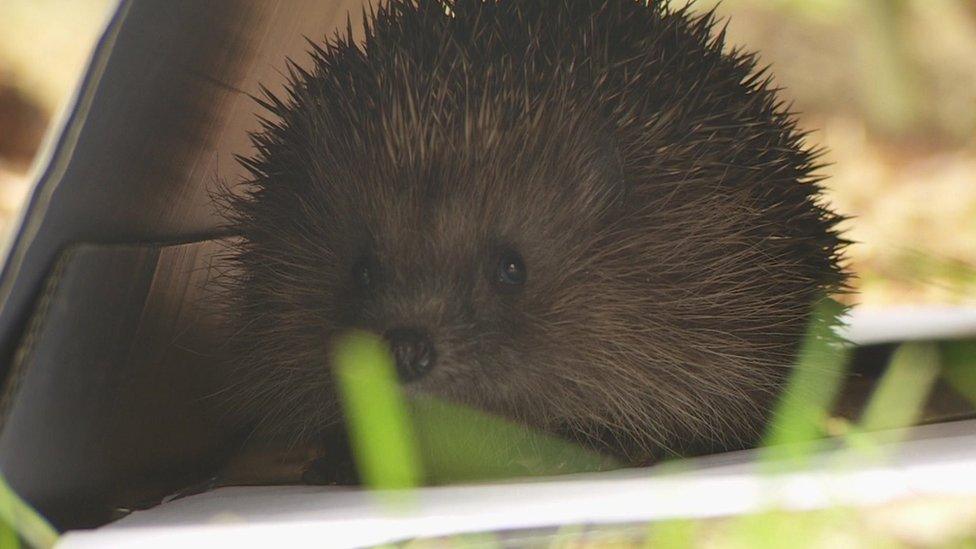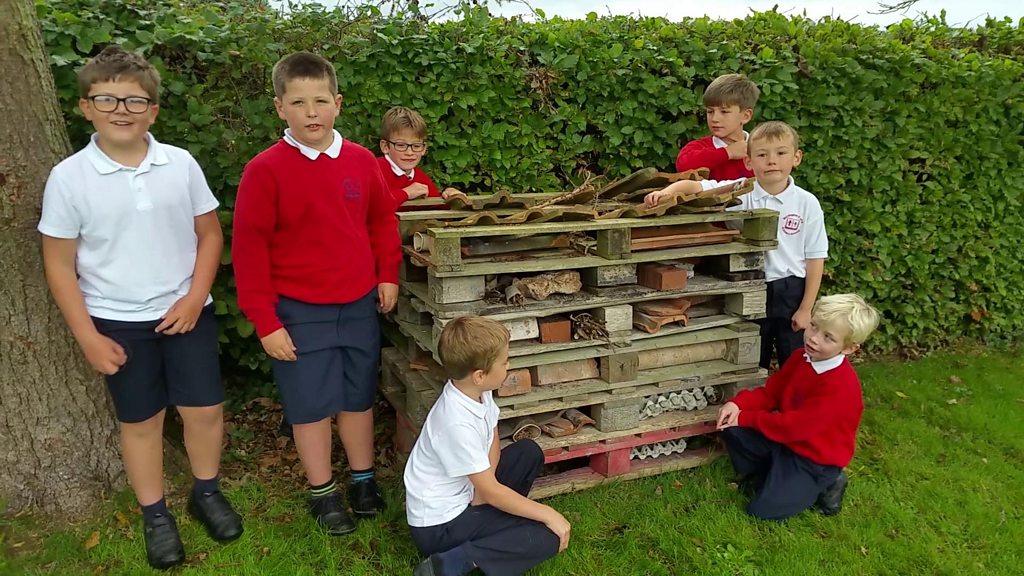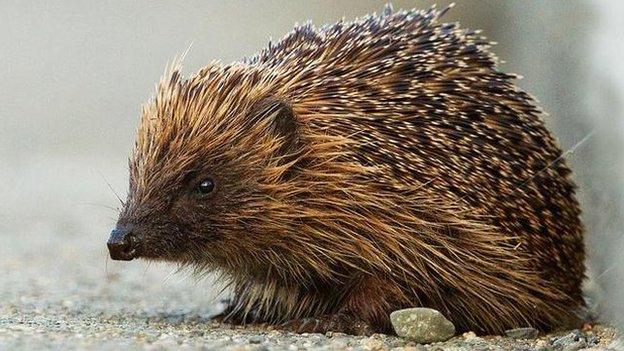Hedgehog Awareness Week 2024: How to help our spiky friends
- Published
Top tips for looking after a hedgehog
It's Hedgehog Awareness Week from 5 - 11 May.
This year's theme is 'Welcome Wildlife' and we've got some great tips and advice on how to can help them.
This year organisers are encouraging people to create a space for wildlife in their gardens or green spaces and want places, such as schools, to do the same.
Why have hedgehog numbers been in decline?
Meet the girls who rescue hedgehogs
Experts say there are a lot of reasons.
Firstly, their habitat has shrunk over the decades as more buildings and houses are built, so hedgehogs can't wander as freely across the landscape as they used to.
Pesticides and herbicides in our gardens and on farmland, which are deadly to hedgehogs, have also had a big impact on the animals' survival.
Hedgehogs numbers are also falling because many are killed on our increasingly busy roads.
Hedgehogs are the only British mammal with spiky spines on their coats.
When threatened they will roll into a tight ball, with the spines providing sharp protection from predators.
Hedgehogs aren't fussy when it comes to food! They eat worms, slugs, frogs and even bird eggs.
A baby hedgehog is a hoglet. They are born with soft spines under the skin to protect their mum but a second set of spines come through after a couple of days.
The kids helping hedgehogs
How can you help hedgehogs?
The Warwickshire Wildlife Trust recommend things like leaving out cat food and water for hedgehogs in your garden.
They also say it's a good idea to make a small (hedgehog-sized) hole in your fence, so they can move between habitats (but make sure you have permission and help from an adult first).
Having a log pile or bug hotel in your garden is another way you can help hedgehogs. The animals feast on insects so if there's an area where there are lots around they'll have more food.
- Published12 March 2016

- Published24 November 2017

- Published17 September 2014

